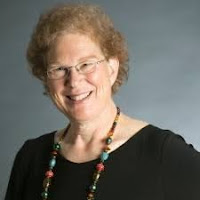 Presiding: Amanda L. Watson, New York University
Presiding: Amanda L. Watson, New York UniversitySession Description: A discussion on the changing role of academic libraries, their workforce future, and professionalization of humanities graduate students. As demand for STEM expertise grows, what is the library’s purpose in twenty-first-century language and literature research and teaching? How are libraries addressing their constituencies’ dynamic, often digitally infused needs?
Milly Jackson, University of Alabama
 Ms.
Jackson feels that people and relationships and wonder matter to libraries and
librarians. A million people come
through her campus library each year, which proves that libraries are here to
stay. Good libraries have good
librarians who build relationships, which is how librarians are vital and
continue to exist. Librarians talk to people who are in reach rather than
email. Finally, the sense of wonder, the
curiosity, the questions librarians had when they entered the profession are
ideas that librarians need to remember; collaboration, in person, is crucial.
Ms.
Jackson feels that people and relationships and wonder matter to libraries and
librarians. A million people come
through her campus library each year, which proves that libraries are here to
stay. Good libraries have good
librarians who build relationships, which is how librarians are vital and
continue to exist. Librarians talk to people who are in reach rather than
email. Finally, the sense of wonder, the
curiosity, the questions librarians had when they entered the profession are
ideas that librarians need to remember; collaboration, in person, is crucial.
Rebecca
Kennison, Columbia University
 Admits
to not having a librarian degree; she has been at a large research university
for eight years. Her background is in
publishing and production. She says, you
know you did your job right when no one notices you, which is why we have to be activists
to show what we do. The transformation
that comes with a more automated world, where purchases are taken out of
librarians control, along with the increasing need for discoverability of
information, a content friendly repository, open meta data set (SHARE) requires
a need for librarians to work as peers with administrators. She believes in openness
of all kinds, not just talking about it.
She believes in a need for the entire infrastructure to work together for
scholarly open access communication.
Digital humanities projects are not cheap; she worked on Digital Dante. Librarians need to be working with deans and
administrators to get information available.
Librarians need to know what the campus issues are and advocate
solutions, not from the idea that we are support staff, but peers, as equal
partners. Librarians are no longer seen as serving.
Admits
to not having a librarian degree; she has been at a large research university
for eight years. Her background is in
publishing and production. She says, you
know you did your job right when no one notices you, which is why we have to be activists
to show what we do. The transformation
that comes with a more automated world, where purchases are taken out of
librarians control, along with the increasing need for discoverability of
information, a content friendly repository, open meta data set (SHARE) requires
a need for librarians to work as peers with administrators. She believes in openness
of all kinds, not just talking about it.
She believes in a need for the entire infrastructure to work together for
scholarly open access communication.
Digital humanities projects are not cheap; she worked on Digital Dante. Librarians need to be working with deans and
administrators to get information available.
Librarians need to know what the campus issues are and advocate
solutions, not from the idea that we are support staff, but peers, as equal
partners. Librarians are no longer seen as serving.
Paige
Morgan, University of Miami
Newly
minted librarian; also doesn’t have a library degree. Librarians are valuable in academic
institutions because they are neutral; they are not making decisions. They are safe places for department members to
come. Projects have a lot of moving
parts and libraries are a good place for mentorship for department
personal. Emotional labor (EL) has come to
the forefront of the debate recently--especially around digital humanities in
scholarship. EL is not going to go
away. Libraries are better equipped than
departments to provide EL in DH scholarship.
After
these three panelists spoke, the room of college librarians and some professors
spoke to some of the issues current in the profession.
The tenor of the discussion revolved around cutbacks in budgets and
library staffing and how to advocate for libraries.

No comments:
Post a Comment